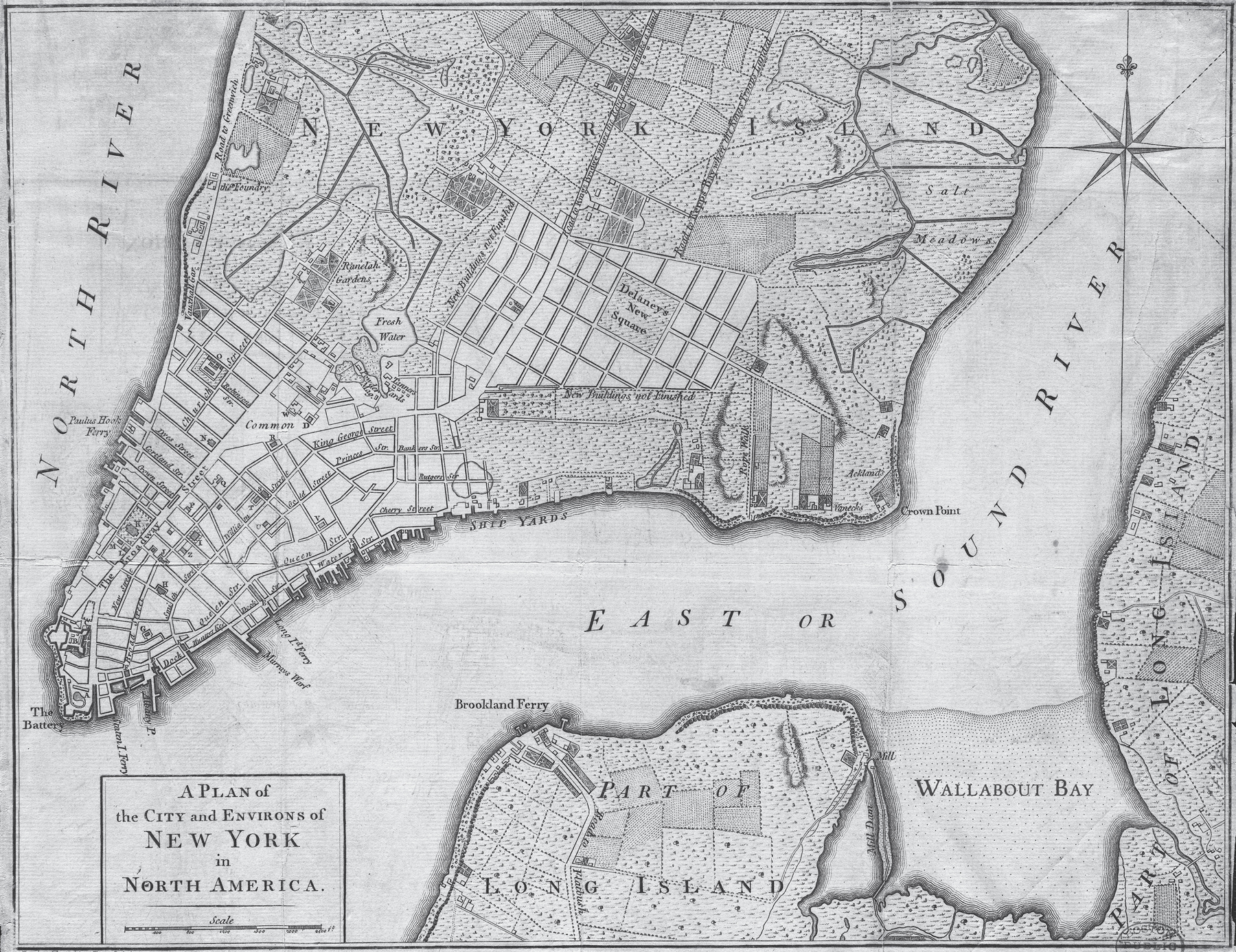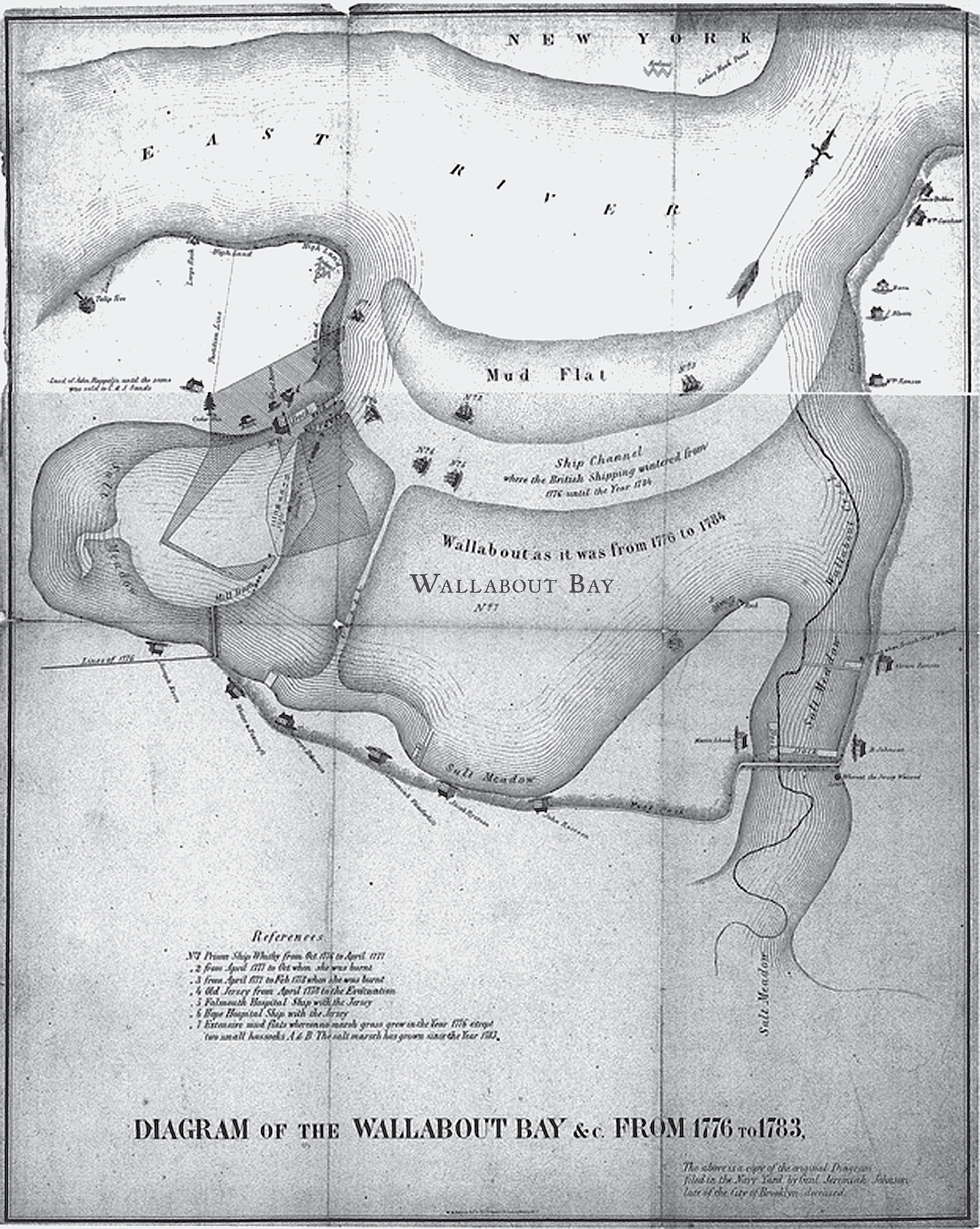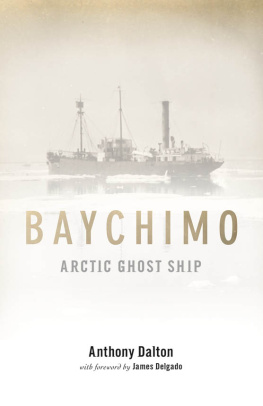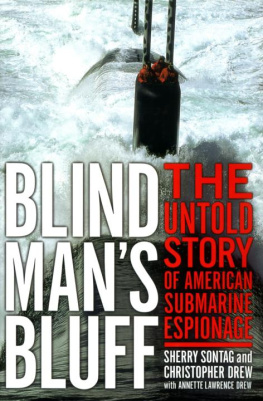Robert P. Watson - The Ghost Ship of Brooklyn: An Untold Story of the American Revolution
Here you can read online Robert P. Watson - The Ghost Ship of Brooklyn: An Untold Story of the American Revolution full text of the book (entire story) in english for free. Download pdf and epub, get meaning, cover and reviews about this ebook. year: 2017, publisher: Da Capo Press, genre: History. Description of the work, (preface) as well as reviews are available. Best literature library LitArk.com created for fans of good reading and offers a wide selection of genres:
Romance novel
Science fiction
Adventure
Detective
Science
History
Home and family
Prose
Art
Politics
Computer
Non-fiction
Religion
Business
Children
Humor
Choose a favorite category and find really read worthwhile books. Enjoy immersion in the world of imagination, feel the emotions of the characters or learn something new for yourself, make an fascinating discovery.

- Book:The Ghost Ship of Brooklyn: An Untold Story of the American Revolution
- Author:
- Publisher:Da Capo Press
- Genre:
- Year:2017
- Rating:4 / 5
- Favourites:Add to favourites
- Your mark:
- 80
- 1
- 2
- 3
- 4
- 5
The Ghost Ship of Brooklyn: An Untold Story of the American Revolution: summary, description and annotation
We offer to read an annotation, description, summary or preface (depends on what the author of the book "The Ghost Ship of Brooklyn: An Untold Story of the American Revolution" wrote himself). If you haven't found the necessary information about the book — write in the comments, we will try to find it.
The Ghost Ship of Brooklyn: An Untold Story of the American Revolution — read online for free the complete book (whole text) full work
Below is the text of the book, divided by pages. System saving the place of the last page read, allows you to conveniently read the book "The Ghost Ship of Brooklyn: An Untold Story of the American Revolution" online for free, without having to search again every time where you left off. Put a bookmark, and you can go to the page where you finished reading at any time.
Font size:
Interval:
Bookmark:

Copyright 2017 by Robert P. Watson
Hachette Book Group supports the right to free expression and the value of copyright. The purpose of copyright is to encourage writers and artists to produce the creative works that enrich our culture.
The scanning, uploading, and distribution of this book without permission is a theft of the authors intellectual property. If you would like permission to use material from the book (other than for review purposes), please contact permissions@hbgusa.com. Thank you for your support of the authors rights.
Da Capo Press
Hachette Book Group
1290 Avenue of the Americas
New York, NY 10104
www.dacapopress.com
First Edition: August 2017
Published by Da Capo Press, an imprint of Perseus Books, LLC, a subsidiary of Hachette Book Group, Inc.
The publisher is not responsible for websites (or their content) that are not owned by the publisher.
Library of Congress Cataloging-in-Publication Data has been applied for.
ISBNs: 978-0-306-82552-1 (hardcover), 978-0-306-82553-8 (ebook)
E3-20170706-JV-PC
To all prisoners of war: your sacrifices
and service are not forgotten

Map of New York City in 1770

Map of Wallabout Bay During the American Revolution
T he treatment of prisoners of war throughout history has been unimaginably horrific. Those soldiers and civilians unfortunate enough to be captured during times of conflict have been subjected to a bewildering array of abuses, including forced labor, starvation, torture, rape, and solitary confinement. Others were simply murdered. Tragically, every country, culture, and conflict has suffered such crimes. Some have been worse than others. The Aztecs, for instance, tied prisoners to stone slabs and cut out their hearts while the prisoner was still alive. In the Second Sino-Japanese War, Imperial Japanese forces murdered tensand possibly hundredsof thousands of Chinese civilians in what became known as the Nanking Massacre or the Rape of Nanking. The Chinese would later return the cruelty, beheading captured Japanese soldiers and using their heads as soccer balls. And during the Nazi reign, Dr. Josef Mengele, the infamous Angel of Death, conducted savagely cruel medical experiments on concentration camp prisoners. Such incidents are all too common in the annals of history and are far too numerous to list.
On the other hand, there have been efforts by the international community, individual governments, and human rights groups to limit such barbarous behavior. One such example is the Geneva Convention, a series of international treaties and agreements on the status and treatment of prisoners of war, first developed in 1864. The subsequent record has been mixed. In the wake of historys bloodiest conflict, when approximately 3.3 million Soviet prisoners taken by the Axis powers died in captivity and Joseph Stalin and the Red Army, in turn, killed countless German prisoners and millions more of their own citizens, the world community came together in 1949 to ratify two new conventions. Sadly, none of this stopped the mistreatment of prisoners.
Americans have been among those prisoners who have suffered during conflicts. This includes the Civil War, when the Confederacy treated Northern prisoners with neglect, disdain, and brutality. Perhaps the most reprehensible example was when roughly thirteen thousand Union soldiers incarcerated at the notorious Andersonville Prison in Georgia died from malnutrition, poor sanitation, disease, exposure to the elements, and abuse at the hands of individuals who had, until only a few years prior, been their fellow countrymen. In the twentieth century, the crimes against American servicemen in Germany, Japan, Korea, and Vietnam were particularly loathsome and numerous.
The ensuing years have been plagued by campaigns of genocide around the world in Cambodia, Rwanda, Bosnia, Darfur, and elsewhere. As I write this preface, the headlines are dominated by news of public beheadings of prisoners by groups such as the self-proclaimed Islamic State and abuses directed at prisoners of war and political prisoners in China, Russia, parts of Africa, and much of the Middle East.
Yet, long before the Geneva Convention, concerns over the mistreatment of prisoners arose during the Revolutionary War, when some of the most odious and vile crimes in American history occurred at the hands of the British and were directed against American soldiers and sailors fighting for independence. While the stories of the Boston Massacre, Boston Tea Party, and Paul Reveres midnight ride are well known by any American schoolchild, the plight of American prisoners during the Revolution remains largely unknown. In particular, history has forgotten the struggles that occurred on an old, rotting prison ship moored off the coast of Brooklyn, despite the fact that as many as 11,500 prisoners may have died in her holdsa number roughly twice the total number of American lives lost in combat during the entirety of the war!
This little-known story is shocking and grisly, but the struggles of those who escaped and, against all odds, survived are nothing shy of inspiring and heroic. They are also important, for they compel us to rethink our inaccurate view of how the British prosecuted the war, to remember the sacrifices made by so many forgotten patriots, and to explore one of the worst tragedies in American military history, one involving a wretched and cursed ghost ship that the British believed would frighten patriots into submission. It did not. It had the opposite effect and unintentionally ended up helping the colonists win the war.
A note to the reader: The words of the prisoners aboard the hellish ship as well as the war records and letters of prison wardens and generals are all quoted verbatim in the following pages. Some of the spelling reflects the time period and varying degrees of literacy of the men and boys in the book.
The book would not have been possible without the assistance of several people. First, I would like to thank my incredible literary agent, Peter Bernstein. I am also fortunate to have Robert Pigeon as my editor. It has been a pleasure to work with such a talented editor as Bob and the entire team at Da Capo Press and Perseus BooksLissa Warren, Justin Lovell, Skyler Lambert, Michael Clark, Sue Warga, Jack Lenzo, and too many others to mention.
I would like to acknowledge Jared Wellman, a librarian at Lynn University, for his help in tracking down old and obscure documents, and both Juan Tirado (who passed away in 2016 after a long and courageous struggle with cancer) and David Garcia for making photocopies of them for me. Nancy Katz and George Goldstein, M.D., read an early version of the manuscript and provided me with valuable feedback. Thanks also to Julie Stoner and Bruce Kirby of the Library of Congress, Joanna Lamaida of the Brooklyn Historical Society, Dr. Daniel Rolph and Steven Smith of the Historical Society of Pennsylvania, Alicia Parks of the Museum of the American Revolution, the reference staff at the New York Public Library, and many other archivists and librarians for their help with accessing historic documents.
Mostly, however, I would like to thank my familyClaudia, Alessandro, and Isabellafor their constant support. Lastly, this book is dedicated to all the men and women who have suffered the misfortune of being a prisoner of war. Your sacrifices are not forgotten.
Font size:
Interval:
Bookmark:
Similar books «The Ghost Ship of Brooklyn: An Untold Story of the American Revolution»
Look at similar books to The Ghost Ship of Brooklyn: An Untold Story of the American Revolution. We have selected literature similar in name and meaning in the hope of providing readers with more options to find new, interesting, not yet read works.
Discussion, reviews of the book The Ghost Ship of Brooklyn: An Untold Story of the American Revolution and just readers' own opinions. Leave your comments, write what you think about the work, its meaning or the main characters. Specify what exactly you liked and what you didn't like, and why you think so.







